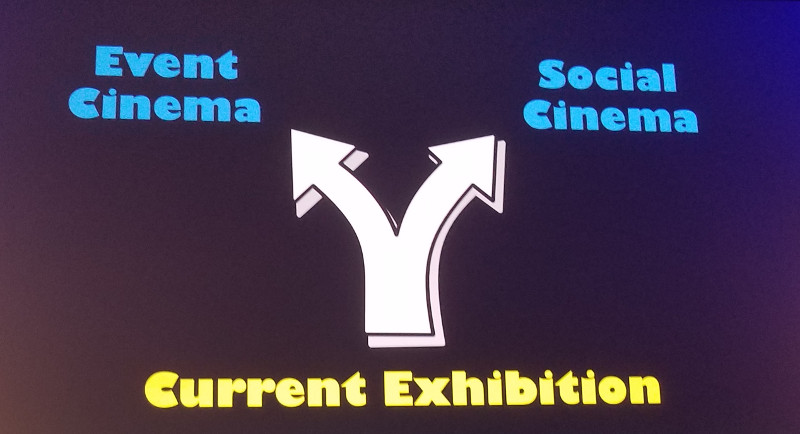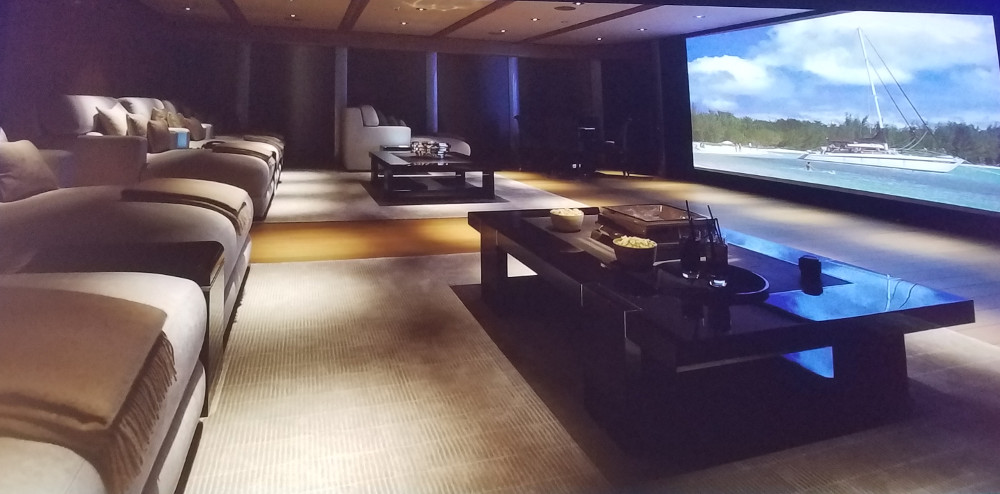 Chris Buchanan, Director of Business Development from Samsung Electronics Cinema group gave the keynote presentation on Sunday morning. While he is very optimistic about the future, he started his presentation by first addressing some of a doomsayers regarding cinema. Yes, there are many competitive threats to cinema and attendance is at a 25-year low, but he is optimistic because theaters are evolving. Digital projection, 4D seats, improved seating and service options, and now, the first LED cinema screens are all improvements. In the cinema, it is no longer just about the content, it is about the experience.
Chris Buchanan, Director of Business Development from Samsung Electronics Cinema group gave the keynote presentation on Sunday morning. While he is very optimistic about the future, he started his presentation by first addressing some of a doomsayers regarding cinema. Yes, there are many competitive threats to cinema and attendance is at a 25-year low, but he is optimistic because theaters are evolving. Digital projection, 4D seats, improved seating and service options, and now, the first LED cinema screens are all improvements. In the cinema, it is no longer just about the content, it is about the experience.
Three factors are in play that make him optimistic about the future of cinema. The first is that positive theatrical experiences lead to increased happiness. The second is that positive experiences lead to increased purchases. Here, he pointed to the recent trends toward consumers embracing Escape Rooms and Rain Room experience. Third is the fear of missing out. Examples include wanting to be with the first groups that see new movies like Black Panther, or attending events like Hamilton or Cochella.
Buchanan sees the cinema moving in two directions: event cinema and social cinema. Event cinema is something you just can’t get at home that will involve a bigger screen, better sound, maybe motion chairs, full wait service, etc. Event cinemas will see more AR/VR in the next three to five years with holographic screens coming in the five to ten year time frame. Haptic experiences may even come after that.

Buchanan said that the social cinema will be a smaller venue “outfitted like George Clooney’s personal theater” where you can come with your friends to see a movie and more. Millenials live in urban environments and they spend on experiences like this, said Buchanan. He cited a recent McKinsey report that suggested investing in “experiences” and he thinks these are some pretty bright people.

But he is most optimistic for the filmmakers. They have so many new tools to create these new experiences, but he agreed with a previous comment that the most important element will continue to be “a good story well told.”
With advanced computer graphics, scans of actors and artificial intelligence, filmmakers can create characters based on actual actors. We are already capturing brain scans of audiences as they watch content, so we can scientifically describe their reactions. CPU and GPU power continues to evolve and light field capture is coming too, so it is a very exciting future, said Buchanan.
But, there needs to be more efficiency in production workflows, more metadata and less friction in exhibition (don’t shorten the theatrical window). “We are not at the end of cinema, but at the beginning of a new cinema,” concluded Buchanan. – CC

